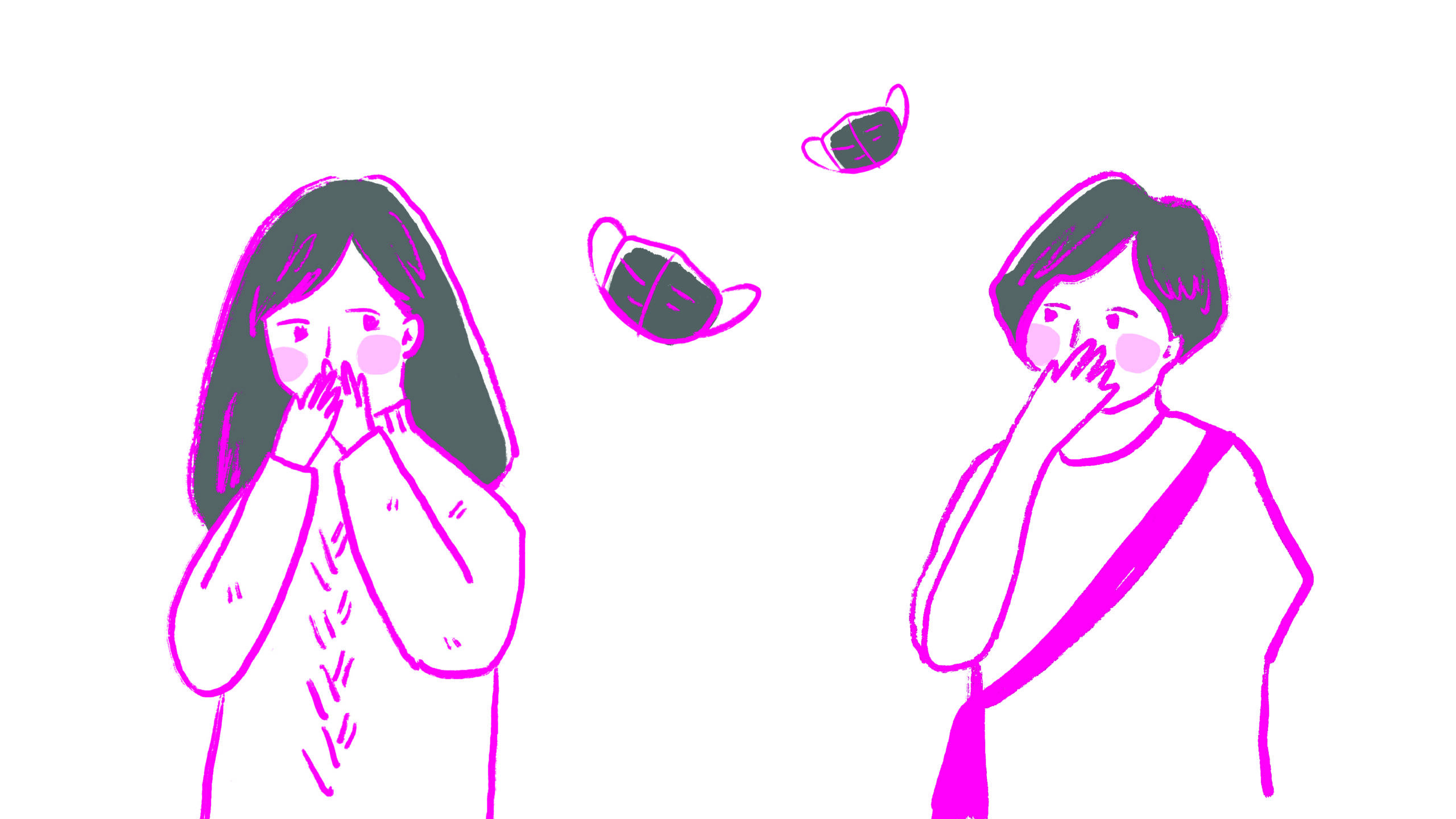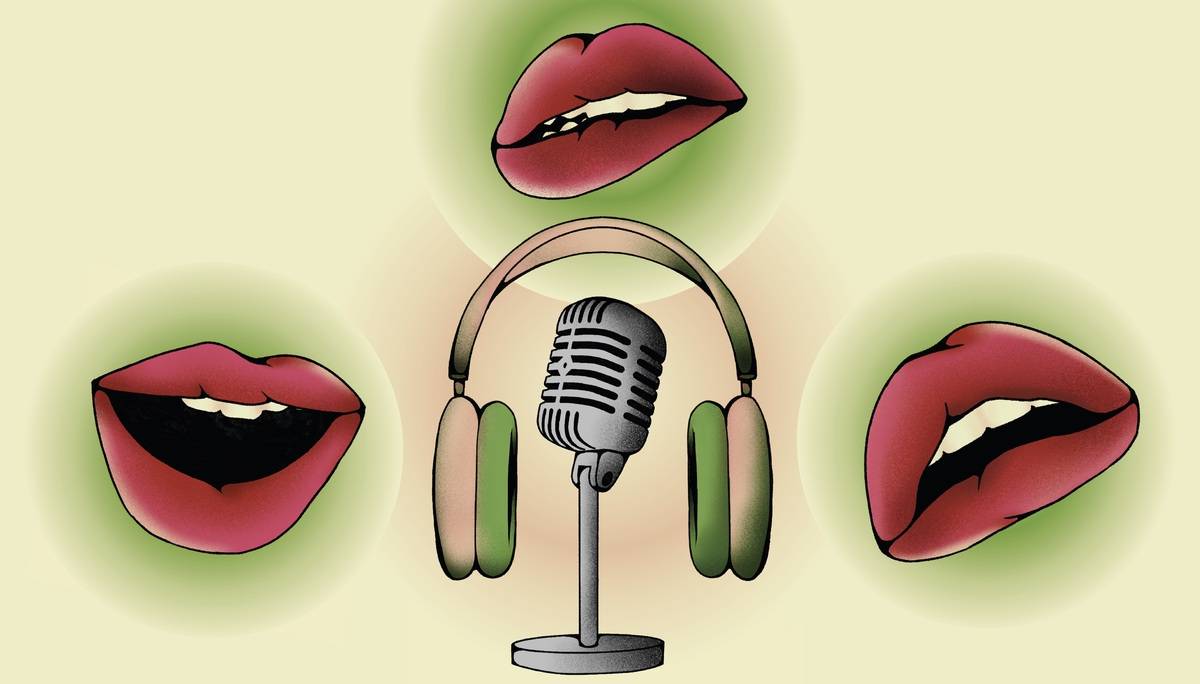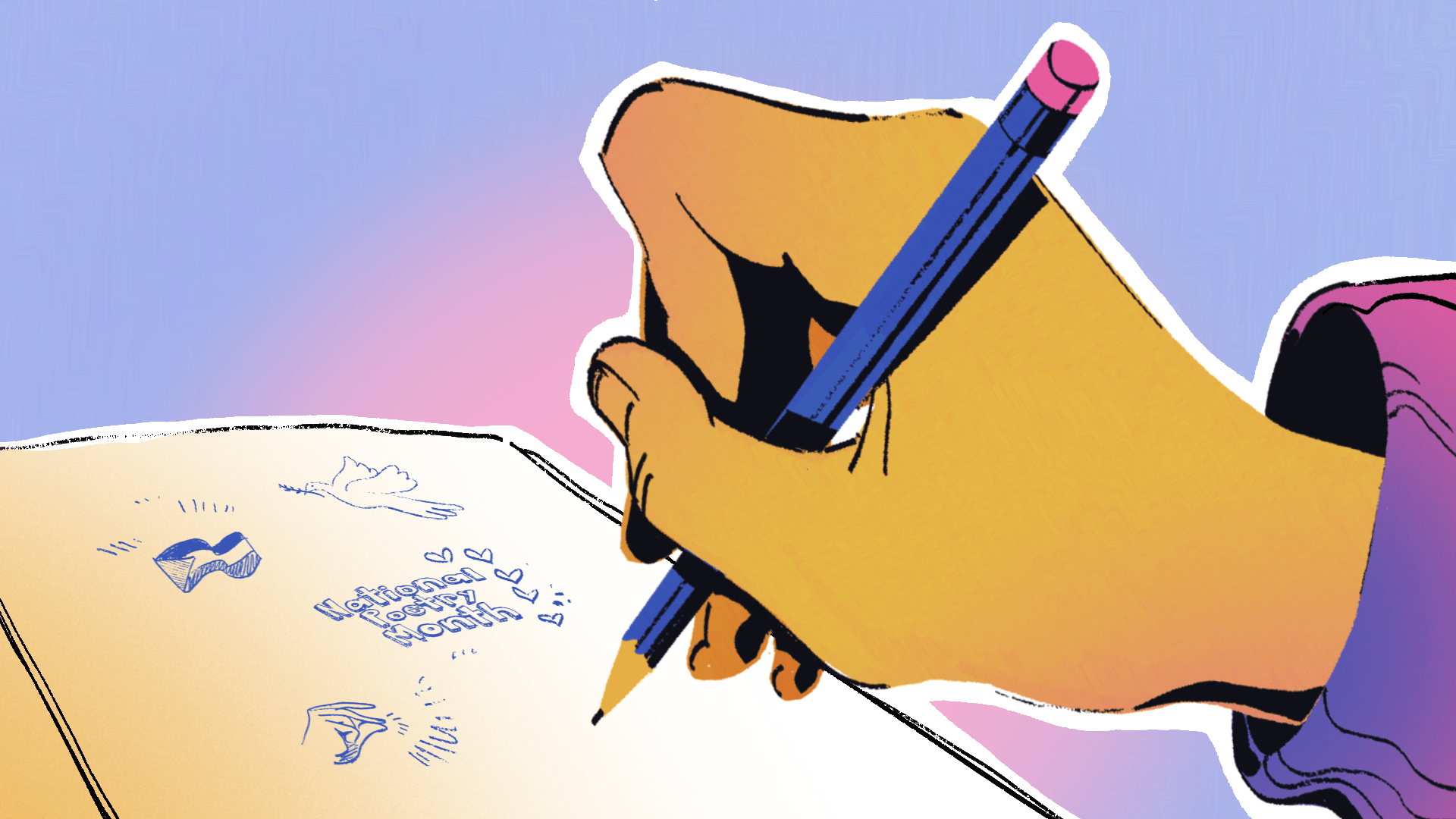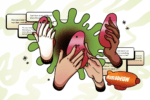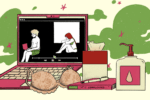BFA senior Marcus Emdanat said the School of the Art Institute of Chicago (SAIC) hasn’t been able to accommodate most of his needs as a student with a disability. But there’s one thing he appreciated about the school — SAIC had kept better masking protocols than other universities.
“To my knowledge, I haven’t had the virus. And I think that is largely because of the fact that SAIC has kept such good policy,” Emdanat said. “Everyone is protecting each other.”
But on Jan. 3, when he discovered SAIC would remove the mask mandate policy, he felt sad and angry, as it puts him at more risk of getting infected with COVID-19.
“I had thought,” Emdanat told F, “Given how long this school’s mask policies held out, that SAIC would be different; clearly I was wrong. They’re just as indifferent to vulnerable people’s pain and suffering as the rest of the world.”
Emdanat’s disappointment about the removal of mask mandates is shared by some students, staff, and faculty at SAIC, who are highly disappointed with the recent changes in COVID-19 protocols. Unlike some other U.S. universities, SAIC had taken a firm stance on masking: students, professors, and staff were all required to wear masks on campus. At first everywhere on campus, then, only in instructional spaces.
Then during the winter break, SAIC administration announced: “For the winter term, we will continue to require masks in our instructional spaces. However, at the start of the spring term — on January 26 — individuals may continue to wear masks, though they will no longer be required in any on-campus space except at the Wellness Center.”
This critical decision comes when the new contagious subvariant of COVID-19 XBB.1.5 is highly spreading all over America and accounts for more than 43 percent of overall COVID cases in the country, according to the Centers for Disease Control and Prevention (CDC). Meanwhile, many doctors have also warned that influenza could be worse this year.
“It is not a good decision, and it will adversely affect immunocompromised students like me. I live in the dorms, and I no longer feel comfortable with SAIC’s COVID-19 policy there. Now I’m uncomfortable with the policy in classrooms too,” a BFA sophomore student stated, who spoke with F on the condition of anonymity.
SAIC and its evolving COVID protocols
When the COVID-19 pandemic began spreading worldwide, SAIC, like many other universities, relied on online methods for teaching. Before resuming its in-person teaching and learning, the school administration, in consultation with the Director of the Institute for Biosecurity at St. Louis University (Dr. Terri Rebmann) introduced the Make Together: A Return to Creating on Campus.
Through this plan, the school had set specific health protocols and guidelines that everyone was to follow. All students, faculty, staff, and contract employees had to be vaccinated with the primary COVID-19 vaccine series, and masks were required throughout the campus. Now, none of the SAIC community are required to cover their faces with masks. Neither has the school made the bivalent vaccine mandatory, which the CDC strongly recommends.
“As of the spring semester, masks will be optional everywhere on campus with the exception of the Wellness Center. This change was recommended by Dr. Rebmann in light of the lessening virility of the dominant COVID variants, good hospital capacity, and little evidence of campus transmission in spaces that have been mask-optional this past fall.” Provost Martin Berger told F.
“To inform our decisions,” Berger added, “We’ve continued to consult with Dr. Rebmann and review the latest science and local and national public health guidance. We frequently review our protocols, make adjustments as needed, and communicate those adjustments — and our reasoning— with students, faculty, and staff.”
The email announcing the removal of the mask mandate also included a video from Dr. Rebmann. In the video, Dr. Rebmann states “the vast majority” of COVID-19 infections at St. Louis University “occurred from student exposures that happened in social settings outside of the classroom.” Thus, her university has not had a mask mandate in place, and most likely they won’t have it in the future, she said in the video.
In the fall of 2022, at SAIC, 231 students and 65 employees tested positive for COVID-19. However, Provost Berger said the school’s contact tracing showed “little evidence of transmission in conference rooms, offices, hallways, elevators, [and] lounges (where masks were optional in the fall semester).”
Berger said the new policy is in keeping with the medical community’s consensus and supported by science. He adds that students who need accommodation can work with the Disability and Learning Resource Center.
The decision, which impacts the whole SAIC community, apparently was made without consulting student groups, faculty senate, or staff union. According to Provost Martin Berger: The school made this decision based on “exclusive” consultation with health and safety experts only.
Danny Floyd, part-time faculty senator and lecturer in VCS and Sculpture, told F, “The decision was made unilaterally by the Administration. Shared Governance was not consulted in making this decision, and the decision was announced over Winter Break when the Faculty Senate and its committees were not in session.”
Should SAIC implement such a significant change in working conditions for its staff and faculty without consulting them? Floyd, who played an essential role in forming AICWU, the union for non-tenure-track faculty at SAIC, said this decision may constitute an unfair labor practice, as it changed working conditions for its staff and faculty without consulting the union. He told F that AFSCME Council 31, of which AICWU is a member union, has already submitted a demand to bargain over this change.
The effectiveness of masks
In the U.S., mask mandates have been controversial. Some chose not to wear masks for religious reasons, pandemic fatigue or political belief. But, masks can protect people from COVID-19 and other respiratory diseases, according to health experts.
Research has proven that masks lessen the probability of infection with the virus. While one-way masking can provide some form of protection to prevent the community transmission of viruses like COVID-19, universal masking is always the most effective method, says Olga Morozova, assistant professor at the Department of Public Health Sciences at the University of Chicago.
“Masks are most effective when they are used universally,” she told F Newsmagazine. “If someone is infectious and wears a mask, it reduces the amount of viral particles transmitted by that person and limits the area of potential contamination. Oftentimes, infectious people don’t know that they are infectious, either because they are asymptomatic or pre-symptomatic. This is essentially what makes universal masking effective in transmission reduction.”
Dr. Rebmann also shares similar views in regard to the effectiveness of masks. Still, she defends the school’s decision to remove the mask mandate arguing that there has been a transition in mitigation measures around COVID in most societies.
“In general, communities and universities have shifted from attempting to prevent all transmission to instead focusing on personal accountability and responsibility and trying to limit severe illness and impacts on the health care system. What all of this means is that, in our current pandemic epidemiology, we as a nation are moving away from universal masking to having individuals choose when they want to wear a mask/respirator,” she said.
One of the significant reasons why the universal mandate on campus was removed is also because of how COVID-19 has evolved and mutated over the years, making it less pathogenic, argues Dr. Rebmann. “For most individuals, infection is very mild,” she claims.
Nevertheless, for some students, getting infected with COVID-19 is the last thing they want in their life. When universal masking at SAIC was required, they felt safe on campus. Now, they are worried about their safety, while attending the classes in person.
“I will say, this mask mandate removal makes me very nervous,” said a BFAAE sophomore, speaking on condition of anonymity. “Just in the past two weeks my grandmother died from COVID, my father is immunocompromised and when I had the virus I almost had to be hospitalized. Knowing how other SAIC students tend to party and constantly socialize, I am very scared to see a large spike in cases.”
Faculty who spoke with SAIC are also worried, especially non-tenure track faculty.
“We should be considering that many courses taught at the school are by lecturers, who are not offered health insurance by the administration, and who are, of course, paid less than any other faculty members, while teaching most of the bedrock courses here, such as the first year seminars. Their already precarious situation just became more tenuous,” said Patrick Durgin, VCS associate professor-adjunct.
Some students also dissatisfied with the language used by the school around masks.
“Mask policies and the language surrounding them are of utmost importance. I am already affected by ‘Long Covid’ symptoms and would prefer to stay out of the hospital as someone who medically cannot be vaccinated at this time,” said Ceilidh (kale) Birkhahn, a BFA senior student. “The language used to ʻencourageʼ mask wearing frames it as an evil that is becoming less necessary, which informs unsafe behavior and disregard.”
What are other universities doing?
SAIC is not the only university that has dropped its mask mandate. At many other universities like Stanford University, Harvard University, University of Chicago, Northwestern University, and DePaul University, masks are optional for students and faculty. Nevertheless, there are universities where universal masking — at least in classrooms — is still practiced.
At Rhode Island College of Design, masks are required in classrooms. Similarly, Columbia College Chicago, another private school in Chicago, has also made it compulsory for students and faculty to wear masks in classrooms and other instructional settings. Furthermore, several universities and schools like UMass Boston and Chelsea Public Schools have re-instituted their mandatory mask protocols for students and staff amid an ongoing surge of COVID-19 cases.
Not everyone wants to wear masks
Although SAIC’s mask removal has irked some students and staff, some people in the SAIC community are relieved.
Tien Thuy Vo, a first-year graduate student in the VCS program, argues that for international students like her whose first language isn’t English, not wearing masks can be really helpful in communicating with teachers and fellow students.
“I prefer not wearing a mask as it helps me to understand verbal communication better in class,” Tien said. “If a person is not wearing a mask, I can see their facial expressions and lips movement and also the sound of the utterance is clearer,” she adds.
For people with hearing disabilities, masks can also pose a significant challenge. As some people with hearing disabilities need to read lips to understand what people are saying, seeing the face of the other person becomes essential.
“From a disability perspective, I have tinnitus, so it’s very difficult to hear students who are masked. I also see a big drop in students connecting with each other, since they cannot read each others’ full expressions or even recognize each other outside of class. The mask has become a barrier to instruction and building community,” said a faculty member, who chose to remain anonymous.
What’s next?
We can only speculate how the decision to lift the mask mandate will impact the SAIC community. Currently, the local risk in Chicago according to the CDC, is medium. The school administration said it is ready to change the COVID protocols if an emergency arises.
“Of course, the evolving nature of the virus may require that we shift course as the academic year continues. If that happens, we will communicate any updates to everyone via email,” Provost Martin Berger told F Newsmagazine.
SAIC hasn’t explained its plan for a spike in infections, and it has recommended but not required the bivalent vaccines.
Many in the SAIC community hope the conversation around masking policy will continue.
Ankit Khadgi (MAVCS 2024) is a Nepali queer storyteller based in Chicago. He hates people who eat momo with ketchup and mayonnaise and drink Chai Tea.

